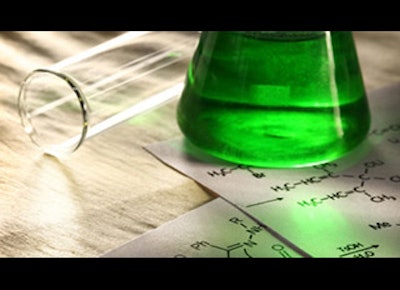
Concerns over toxic substances — the new term seems to be "chemicals of concern" — in our everyday lives have been around since Rachel Carson penned "Silent Spring" more than a half-century ago. But getting the most problematic chemicals out of products and supply chains has been slow-going, especially as government regulation of such chemicals has been timid.
Regulation by the marketplace is another matter. Over the past year, big retailers such as Wal-Mart and Target have approached the issue head-on, pushing suppliers to disclose ingredients or simply vowing to phase out use of some chemicals in the products they sell.
Wal-Mart announced a policy to require manufacturers of cosmetics and cleaning products to disclose ingredients in their products and remove priority hazardous chemicals. The company said it would start with 10 priority chemicals, although it isn't yet disclosing which ones, and some critics both praised the policy and pointed to its flaws. Target, for its part, announced a partnership with UL's GoodGuide to establish sustainability standards for some 7,500 products, focusing on personal care and household cleaning products — "direct-exposure chemical products" with a strong focus on toxic or otherwise problematic ingredients.
These and other initiatives are aimed at driving manufacturers of these products to know more about the chemicals in their products, supply chains and buildings, be more transparent about what's in their products, avoid chemicals of concern, shift to inherently safer chemicals and commit to continuous improvement toward greener chemistry in their products.
The Road Ahead
This won't be easy. More than 85,000 chemicals are in commerce in the United States alone, according to the California Department of Toxic Substances Control, including 2,500 "high production volume" (HPV) chemicals, manufactured at a rate of more than 1 million pounds annually. "Nearly 45 percent of these HPV chemicals [lack] adequate toxicological studies conducted to evaluate their health effects on humans and wildlife," says DTSC. Further, about 2,000 new chemicals are introduced into commerce annually in the United States — nearly six new chemicals every day.
Recent studies have shown that some of these chemicals can act as endocrine disruptors, affecting normal hormone function, and can do so at the parts-per-billion or parts-per-trillion level. And their effects can be transgenerational, persisting for decades.
As more such information comes to light, concern is growing among consumers, advocacy groups, government regulators, health professionals and others. For years, product manufacturers and retailers hid behind the veil of proprietary nondisclosure — the companies professed ignorance of such chemicals' existence because they were used by upstream suppliers, who didn't disclose ingredients because of competitive pressures. At least, that was their excuse.
Chemicals of Concern
But that's changing. As concern grows, activists are stepping up pressure on those closest to end users — branded manufacturers and retailers. One goal is to expand ingredient disclosure in the hopes of unearthing chemicals of concern in everyday products, with an emphasis on personal care products, cosmetics and toys. The efforts were led in recent years by concerns over bisphenol A, an industrial chemical present in many hard plastic bottles and metal-based food and beverage cans since the 1960s. As a growing number of studies linked the chemical with cancer, developmental problems and reproductive issues in laboratory tests — and as news reports about those studies stoked public concern and activist pressure — companies including Campbell Soup and General Mills began to move away from using it.






















